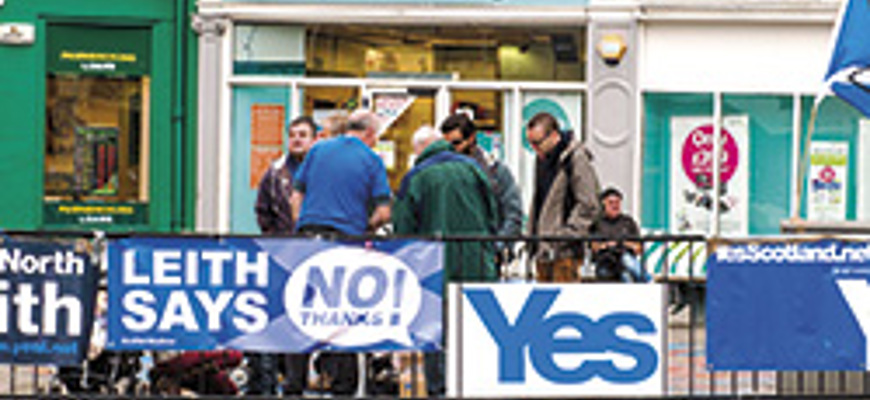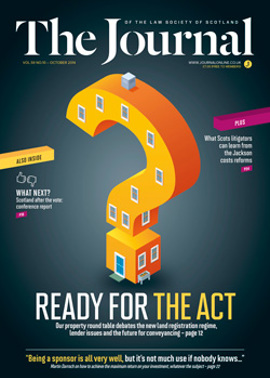Refereeing the referendum

It was the biggest event on Scotland’s political calendar in a generation, and the referendum on Scottish independence didn’t disappoint in getting the population fired up on the thorny issue of the country’s future. Never before was constitutional change so topical.
But while the focus was on the ultimate result, much was occurring behind the scenes to make the campaigns and the vote a fair one. Part of making this happen was the Electoral Commission, and its legal counsel, and director of party and election finance, Bob Posner.
He has been involved in the process which established the referendum from day one. This included advising both the UK and Scottish Governments on the draft of the bill and inputting to the Commission’s question assessment process. Bob also made sure that the Commission’s briefings to parliamentarians highlighted any legal issues that both governments needed to resolve before the bill became law.
Once the campaigns started, Bob was on hand to make sure everyone was following the rules – contributing to guidance on what was and was not allowed, particularly regarding campaign contributions and spending.
All of which helped towards voters having trust and confidence in the whole process. “There were allegations concerning spending by both the Yes and No campaign groups over whether they were complying with the rules,” Bob explained. “There were a lot of groups campaigning for Yes and No, and lots of events, rallies and marches. If any were working together then their spending would have to be added together.”
So Bob was called on to advise quickly on how groups ensured they followed the rules, whether that was by a formal letter, or even by meeting them directly, and not just over spending, but a wide range of other issues.
The speed at which issues had to be resolved was the real challenge. “That has been the testing thing for me as a lawyer – that there is not a lot of time to resolve issues,” Bob said. “There is no time for court or a lengthy dispute resolution process. Everything has to be done immediately – in real time. There is no coming back to resolve something six months after the fact. People need to have confidence in the process.”
Wearing another hat, Bob was also an election observer when the vote was happening, to make sure everything was running to plan, and as the dust settles on the referendum, he is currently involved in drafting a statutory report on what went well, and what could have been better. It’s a document which will be seen beyond the UK’s shores, to help guide future referendums not only here, but also around the world. It will also be of interest to the Law Commissions in the UK, who are looking at needed reforms in electoral law and will be publishing their consultation towards the end of this year.
“From beginning to end it was a fascinating process,” Bob concluded. And he had the privilege of being in the thick of history as it unfolded. It’s all part of the job. “A lot of what I need to do is out from behind a desk – getting on planes or trains and dealing with people directly. At the Scottish referendum and in elections it is not about being a desk lawyer.”
In this issue
- Respect revived
- Adoption: when should contact continue?
- Family values
- Designs on IP law
- Section 29 claims, time bar and service
- Sharing the rewards
- Reading for pleasure
- Opinion: Lauren Wood
- Book reviews
- Profile
- President's column
- Making the big changeover
- People on the move
- Another leap forward
- LBTT: aligning payment and registration
- The (legal) people have spoken
- Powers of attorney: another angle
- Greatness begins with a pin badge
- Jackson: has it delivered?
- The test for causing alarm
- When do licensed premises "cease to be used"?
- Empowering communities
- Has clawback lost its tax bite?
- Scottish Solicitors Discipline Tribunal
- Property Law Committee Update
- Call it a comeback
- Refereeing the referendum
- Law reform roundup
- From the Brussels office
- What's next for SYLA?
- Mediation first
- When life begins at 60
- With growth there is risk? (2)
- Ask Ash
- Sustainable future: new ideas for the training contract
- Mentoring - why?
- Lender Exchange: what's it about?
- A bar removed






